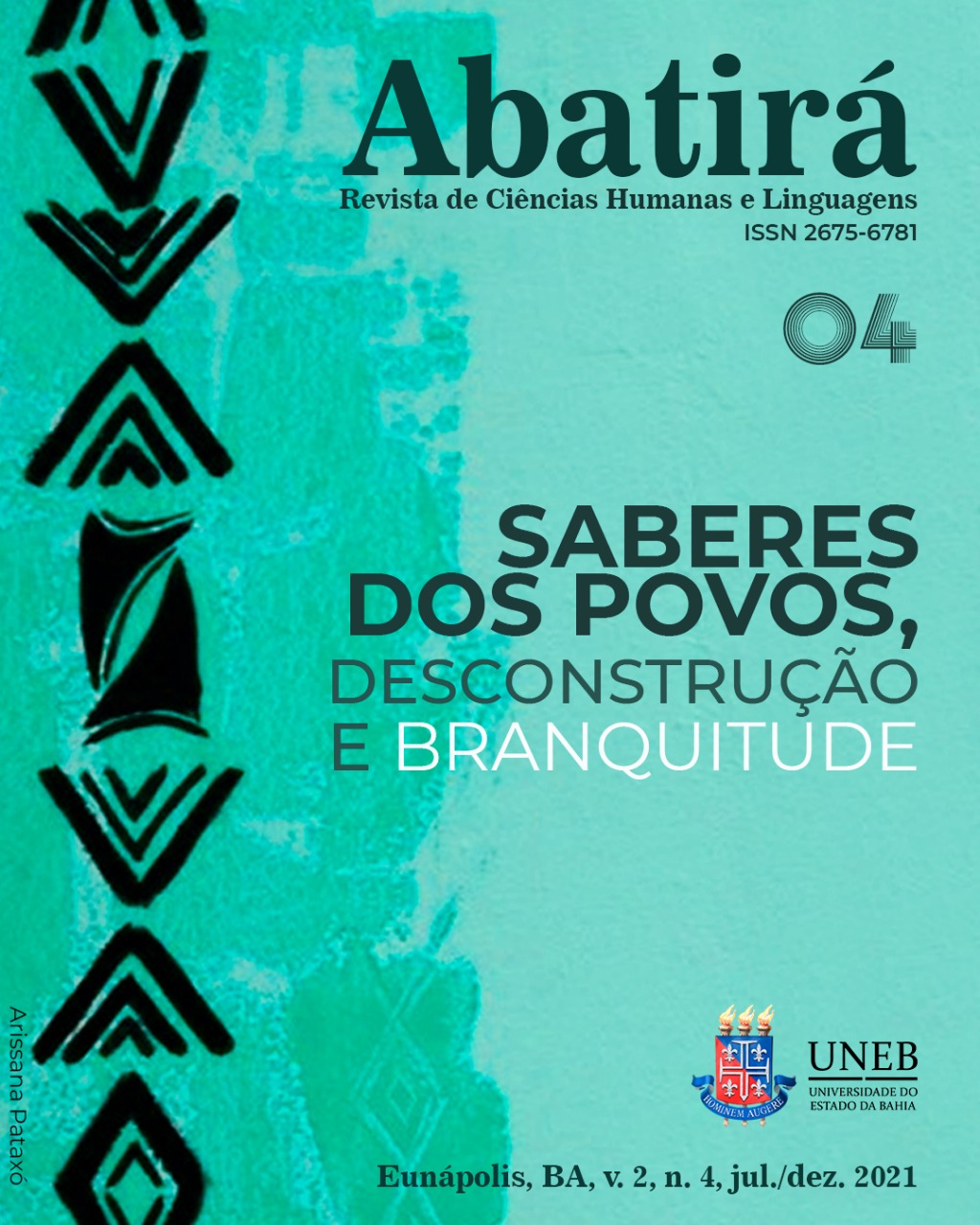The spell of rationality and epidermal thought
Keywords:
Colonialism, Experimental Philosophy, Opacity, Orality, VoiceAbstract
There are relations capable of generating image systems, non-conceptual processes, languages which spark instead of merely “reflecting”. And there is writing that binds the body as we inherit it, tied to a philosophy of Being. The latter, animated by a desire of epistemic security we fantasize in accepting difference as mere object of comprehension, demands transparency from an other whose singularity is accepted only as it becomes governable. Our essay goes towards the first possibility, the relation between body and speech: how does one inhabit the boundary between the subject who operates deconstruction and the Other who incites this subject? Could this be a place of tension, one provoked by an untranslatable surplus which resists the confort zone where we find the question “how can I decolonize myself?”. It’s a way of furthering the thinking deformed by alterity and, under recognition of the radically stranger within the self, to refuse offering a dialetic of recognition to the Other. It demands na experience of revocalization of the word, not only as an ordinary path of communication, but as phisolophical movement.
Downloads
References
BARTHES, Roland. O prazer do texto. Trad. J. Guinsburg. São Paulo: Ed. Perspectiva, 1977.
BRATHWAITE, Kamau Edward. History of the voice: The development of nation language in Anglophone Caribbean poetry. Londres: New Beacon Books, 1984.
CÉSAIRE, A. Cahier d’um retour au pays natal. Paris: Ed. Présence Africaine, 1983.
CAVARERO, Adriana. Vozes plurais: filosofia da expressão vocal. Tradução de Flavio Terrigno Barbeitas. Belo Horizonte: Editora UFMG, 2011.
DOLAR, Mladen. “Política da voz”. Trad. Fábio Roberto Lucas. Literatura e Sociedade, v. 19, n. 19, 2014, p. 192-206.
FANON, Frantz. Pele negra, máscaras brancas. Trad. Renato da Silveira. EdUFBA, 2008.
GLISSANT, Édouard. “Free and Forced Poetics”. Alcheringa. Transl. Michel Benamou. Boston: Universidade de Boston, v. 2, n. 2, 1976, p. 95-101.
GLISSANT, Édouard. Poética da relação. Trad. Marcela Vieira e Eduardo Jorge de Oliveira. Prefácio por Ana Kiffer e Edimilson de Almeida Pereira. Rio de Janeiro: Bazar do Tempo, 2021.
HALBERSTAM, Jack/Judith. “The wild beyond”. In: HARNEY, Stefano; MOTEN, Fred. The Undercommons: Fugitive Planning & Black Studies. Brooklyn: Autonomedia, 2013, p. 5-12.
HOSHINO, Thiago. “Filosofia com(o) sotaque: patoás, patuás e amarrações”. Dossiê “Pensamentos guerreiros contra a colonialidade”, Revista Cult, n. 271, p. 26-27, jul/2021.
KOPENAWA, Davi. A queda do céu. Trad. Beatriz Perrone-Moisés. São Paulo: Cia das Letras, 2015.
MOTEN, Fred. “A Resistência do Objeto: O Grito de Tia Hester”. Trad. Matheus Araujo dos Santos. Dossiê “A música e suas determinações materiais”, Revista ECO-Pós, v. 23, n. 1, 2020, p. 14-43.
NASCIMENTO, Marcos. Os portões da fábrica. Rio de Janeiro: 7Letras, 2021, p. 27.
OLIVEIRA, João Pacheco de. O nascimento do Brasil e outros ensaios. Rio de Janeiro: Contra Capa, 2016, 45-6.
ZUMTHOR, Paul. Introdução à poesia oral. Trad. Jerusa Pires Ferreira. São Paulo: Educ, 1997.
ZUMTHOR, Paul. Performance, recepção, leitura. Trad. Jerusa Pires Ferreira. São Paulo: Ubu, 2018.
Downloads
Published
How to Cite
Issue
Section
License

Este trabalho está licenciado sob uma licença Creative Commons Attribution 4.0 International License.Você é livre para:
Compartilhar - copia e redistribui o material em qualquer meio ou formato; Adapte - remixe, transforme e construa a partir do material para qualquer propósito, mesmo comercialmente. Esta licença é aceitável para Obras Culturais Livres. O licenciante não pode revogar essas liberdades, desde que você siga os termos da licença.
Sob os seguintes termos:
Atribuição - você deve dar o crédito apropriado, fornecer um link para a licença e indicar se alguma alteração foi feita. Você pode fazer isso de qualquer maneira razoável, mas não de uma forma que sugira que você ou seu uso seja aprovado pelo licenciante.
Não há restrições adicionais - Você não pode aplicar termos legais ou medidas tecnológicas que restrinjam legalmente outros para fazer qualquer uso permitido pela licença.





